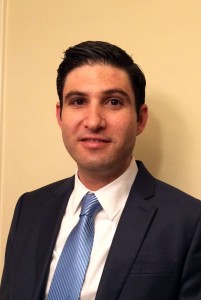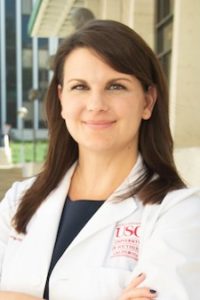American epidemic: USC experts discuss the opioid crisis
The American opioid epidemic killed nearly 400,000 people from 1999 to 2017, according to the Centers for Disease Control and Prevention. Hundreds of lawsuits have been filed against drug companies; a recent investigation revealed they distributed 76 billion oxycodone and hydrocodone pain pills from 2006 through 2012. What caused America’s deadliest drug crisis and what can be done to solve it? USC experts offer their insights.
Contact: Jenesse Miller, (213) 810-8554 or jenessem@usc.edu
Tune in for a Facebook Live broadcast at noon PST on Friday, August 2 with USC researchers as they discuss the opioid crisis.
How is prescription opioid abuse leading to heroin use?
 “Some illicit drugs are geographically specific but opioids are almost everywhere, regardless of where you live. This is also the first time we’ve really had a drug use epidemic that has started through the health care system.
“Some illicit drugs are geographically specific but opioids are almost everywhere, regardless of where you live. This is also the first time we’ve really had a drug use epidemic that has started through the health care system.
“Many users transitioned to heroin which is more potent and less expensive. Meanwhile, we reacted to the crisis by cutting in half the number of opioid prescriptions. We now know people are moving from opioids to heroin to injection. We missed the opportunity to change that progression, so we need to move more aggressively to reduce opioid abuse and to implement safer venues to consume drugs. The end result will benefit public health.”
Ricky Bluthenthal is the associate dean for social justice and a professor in the Department of Preventive Medicine at the Keck School of Medicine of USC. His research has established the effectiveness of syringe exchange programs, tested novel interventions and strategies to reduce HIV risk and examined health policy implementation.
Contact: (323) 442-8236 or rbluthen@usc.edu
How do opioids fit into America’s larger addiction crisis?
 “Opioids are part of a larger addiction crisis. You’ve got new forms of commercialized cannabis, a youth nicotine vaping epidemic and a whole generation addicted to their smartphones.
“Opioids are part of a larger addiction crisis. You’ve got new forms of commercialized cannabis, a youth nicotine vaping epidemic and a whole generation addicted to their smartphones.
“For some, opioids can produce pain relief without much euphoria. For others, opioids produce powerful euphoria and a sense of calm that can be difficult to cultivate naturally. Coming up with a new medication that’s going to treat pain without getting people addicted — that’s the holy grail.”
Adam Leventhal is a professor of preventive medicine and psychology and director of the USC Health, Emotion and Addiction Lab. The lab is a group of faculty investigators, staff and trainees who study the causes, consequences, treatment and prevention of addiction and mental illness across the lifespan.
Contact: (323) 442-8222 or adam.leventhal@usc.edu
Where are people getting prescription opioids?
 “To curb the opioid epidemic, we need better evidence to understand how and where people are obtaining opioids. For example, one hypothesis has been that the emergency room is a recurrent site of care and that patients could be going from ER to ER to obtain multiple prescriptions to support their addiction. But our research has shown that emergency rooms account for a very small share of all prescribed opioids.
“To curb the opioid epidemic, we need better evidence to understand how and where people are obtaining opioids. For example, one hypothesis has been that the emergency room is a recurrent site of care and that patients could be going from ER to ER to obtain multiple prescriptions to support their addiction. But our research has shown that emergency rooms account for a very small share of all prescribed opioids.
“By understanding how people receive and use opioids we can develop tailored policies that reduce improper opioid use while minimizing negative health outcomes.”
Sarah Axeen is an assistant professor of research at the USC Schaeffer Center for Health Policy & Economics and at the Keck School of Medicine of USC in the Department of Emergency Medicine. Her research focuses on understanding drivers of, and evaluating solutions to, opioid use and abuse in the United States.
Contact: (213) 821-7959 or axeen@usc.edu
How has ‘survivorship bias’ contributed to overdose deaths?
 “Opioid deaths can easily go unnoticed by clinicians. Clinic visits involve patients who are alive and who are either treated with a new opioid prescription or who are returning for a refill. This ‘survivorship bias’ can lead physicians to believe that the opioid crisis is not impacting their own practice, because they deal day-to-day with living patients.
“Opioid deaths can easily go unnoticed by clinicians. Clinic visits involve patients who are alive and who are either treated with a new opioid prescription or who are returning for a refill. This ‘survivorship bias’ can lead physicians to believe that the opioid crisis is not impacting their own practice, because they deal day-to-day with living patients.
“Doctors need to know what’s happened to their patients, and that someone is paying attention, so they can help avoid deaths while they seek to alleviate pain.”
Jason Doctor is an associate professor and chair of the Department of Health Policy and Management at the USC Price School of Public Policy, and a behavioral economist at the USC Schaeffer Center for Health Policy & Economics. A study by Doctor and colleagues found physicians reduce opioid prescriptions after learning of patient overdoses.
Contact: jdoctor@usc.edu
Is litigation the key to holding drug companies responsible?
 “Every country faces problems related to products that cause harm from either latent defects or corporate misconduct or both, whether it’s opioids, cigarettes, lead paint, asbestos or even Facebook. In the United States, we tend to rely more on litigation to address these problems — a trend that should continue given the rancor on Capitol Hill.
“Every country faces problems related to products that cause harm from either latent defects or corporate misconduct or both, whether it’s opioids, cigarettes, lead paint, asbestos or even Facebook. In the United States, we tend to rely more on litigation to address these problems — a trend that should continue given the rancor on Capitol Hill.
“While litigation has its strengths in revealing corporate secrets and holding powerful interests accountable, its focus on assigning individual fault can distract from the broader problem of what we should do about the inevitable risks of consumer products to the public well-being.”
Jeb Barnes is a professor of political science at the USC Dornsife College of Letters, Arts and Sciences. His expertise is at the intersection of law, politics and governance.
Contact: barnesj@usc.edu or (213) 740-1689
What’s the role of pharmacists in addressing the epidemic?
 “As health care providers and drug therapy experts, pharmacists play an critical role in addressing the U.S. opioid epidemic.
“As health care providers and drug therapy experts, pharmacists play an critical role in addressing the U.S. opioid epidemic.
“From educating patients and other health care providers regarding non-opioid options and opioid use reduction, to risk mitigation strategies such as state prescription drug monitoring programs and furnishing of naloxone, to referring patients to medication assisted treatment programs, pharmacists truly are on the front line.”
Melissa Durham is an associate professor of clinical pharmacy and the assistant dean of diversity, equity and inclusion at the USC School of Pharmacy. Durham established a pharmacist-run pain medication management clinic at the USC Pain Center.
Contact: mdurham@usc.edu or (323) 442-1481



